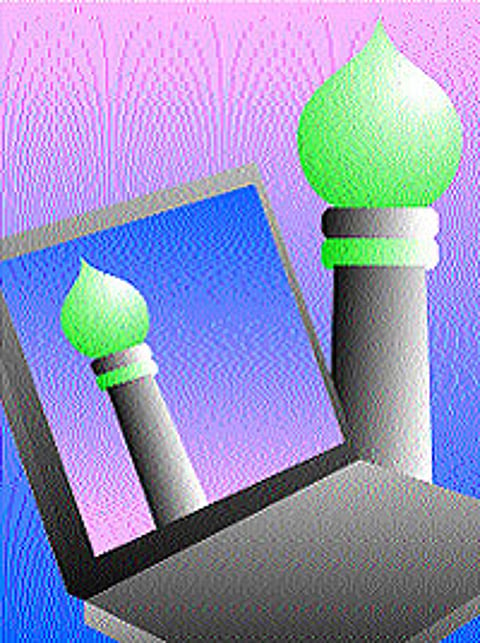Politics Is Cinema
Hyderabad Diary
When I came to live in Hyderabad a decade ago, a wise man, visibly drunk, told me that the three things that mattered in Hyderabad were politics, astrology and cinema.

When I came to live in Hyderabad a decade ago, a wise man, visibly drunk, told me that the three things that mattered in Hyderabad were politics, astrology and cinema. Having lived in Delhi for many years, I understood politics as a mixture of sleaze, boasting about your proximity to the high and mighty and an eternal quest for freebies. Hyderabad taught me that politics was still old-fashioned rhetoric and high-decibel posturing. Politics effortlessly simulates the exaggerated kitsch of Telugu cinema, with few and rare exceptions in either genre. The family resemblance between politics and cinema has been the staple of politics here in the last few decades, especially with film stars regularly joining the queue for ‘serving the people’. Over the years I have seen alliances change, ideologies dilute and governance collapse, but the level of noise and invective has remained unchanged. Politicians have publicly questioned the biological legitimacy of their rivals, the morals and scruples of each other’s wives, sons and daughters, physically assaulted one another and spread salacious stories about the catholicity of sexual tastes and adventurousness of their opponents.
But the Telangana question in the last two years has pushed the levels of public debate to a new low. There are no men of light here, and the men of darkness come from every single political party. Take the instance of a sitting MLA being beaten up by the driver of a rival politician with the tactic being hailed as the ‘Mallesh formula’, so consecrated in the name of the perpetrator. The act, then, is legitimised by comparing it to Gandhi’s ‘response’ to Churchill for calling him a half-naked fakir—an analogy I don’t understand but I am sure someone does. But I am told that Hyderabadis love this brand of theatrical politics.
Hyde And Seek
Modern-day Hyderabad has an inexplicable and ambivalent relationship with culture. There are no music festivals comparable to the Shankarlal festival in Delhi or the one that the Madras Music Academy organises every year in December in Chennai. There are few private organisations putting up concerts of quality and the same is the case with theatre. There is nothing remotely comparable to the Prithvi theatre or a cultural festival that could be our version of the Kala Ghoda festival. Shankar Melkote and his Little Theatre struggle to survive and find an audience. The city has no auditorium of the kind that could host an intimate crowd of music listeners or theatre aficionados. A few film clubs struggle to survive and art galleries function largely as retail outlets for paintings and sculpture. A city which has two major universities, a well-known business school and scores of prestigious educational and research institutions does not have a single decent bookshop, with the partial exception of Akshara, a bookshop that completes 15 years of tenuous existence this month. No great public libraries or archives exist that are modern and accessible and out of the clutches of bureaucrats. There is no place like the iic either, where one could sit over a cup of coffee or a drink and have a civilised conversation. Yet, Hyderabad has more money than most Indian cities. What happens to that money is anyone’s guess but even a fraction of it going for a spot of serious culture would lift the city’s profile. In the past three years, I have heard of plans to create something like the iic in Hyderabad but they remain plans.
Starry, Starry Days
Astrology, palmistry, tarot reading, numerology, tantra and vaastu are serious business in Hyderabad. When I was looking for an apartment 10 years ago, I had to sometimes enter prospective apartments through the bathroom or the kitchen because of reasons of vaastu. Nothing happens without an auspicious time being designated by astrologers. Prospective employers have been known to check the horoscopes for numerological compatibility of future employees. Friends with manageable names suddenly turn into hisses or hiccups, what with ‘s’ or ‘h’ added here and there to their names. A colleague once refused to sit at a work station allocated to her. I was less than sympathetic and expressed my inability to help her. In the evening, I saw her striding the office corridor with a fierce, sullen-looking gentleman. He happened to be her vaastu expert. He looked at me with contempt and we did not exchange a word. For the next four months, she sat at the work station at an angle and what seemed an unnaturally uncomfortable posture. Her release came with my resignation and I hope her posture caused her no permanent damage.
Sound Garden
David Shulman’s description of Hyderabad in his book, Spring, Heat, Rains: A South Indian Diary is poetic and vivid. It is this quality of the city that makes us refuse to leave: “Hyderabad in the early morning looks washed, clear, glistening. The jumble of Iran and Palampet, of Persian, Dakhni, Telugu, Amharic, is suddenly whole and perfect—the perfect beauty of the incongruous. Nothing ever satisfies like an elegant dissonance.”
Tags